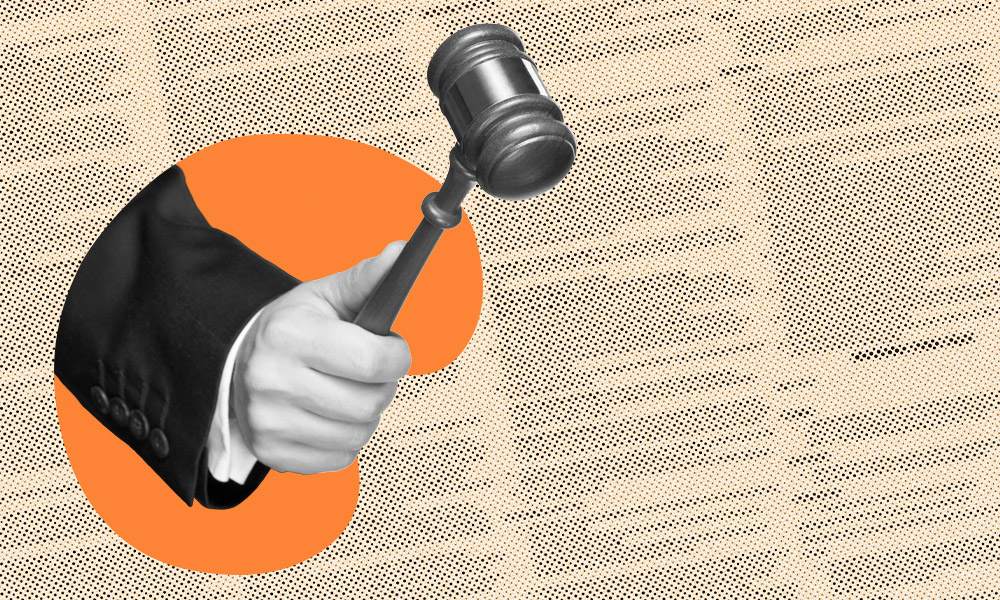Trusts are a fundamental instrument in estate planning, serving as a versatile tool for the careful management and allocation of assets. These legal entities create a fiduciary relationship where one party, the trust’s creator (known as the grantor), grants another party (the trustee) the authority to hold and manage property or assets for the benefit of a third party (the beneficiary). The significance of trusts in estate planning stems from their ability to provide a structured means of transferring wealth and assets, ensuring that the grantor's assets are used in a manner consistent with their intentions and desires.
Revocable trusts stand out for their adaptability and control. They permit the grantor, during their lifetime, to make changes or revoke the trust entirely. This flexibility is particularly beneficial for individuals who seek to retain control over their assets and make adjustments as their personal circumstances or intentions change. Revocable trusts are often used to avoid the probate process, as the assets within these trusts are transferred directly to beneficiaries upon the grantor’s death, thus offering a streamlined and private means of asset distribution.
In contrast, irrevocable trusts, once created, are generally unalterable. This lack of flexibility is counterbalanced by distinct advantages such as asset protection and potential tax benefits. By placing assets in an irrevocable trust, these assets typically fall outside of the grantor’s taxable estate, which can lead to significant tax savings. Also, because the grantor relinquishes control over the assets, they are often protected from creditors and legal judgments, providing a safeguard for the beneficiaries.

While trusts offer considerable advantages, they are governed by legal principles, including the necessity to align with public policy. Public policy in the context of trusts refers to a set of legal standards and societal norms that ensure trust provisions do not foster practices or conditions deemed harmful or unacceptable by society. These standards prevent the creation of trust stipulations that could promote discrimination, encourage illegal activities or otherwise contravene the accepted moral and ethical standards of the community.
This article delves into the intricate balance between the individual’s desires as expressed in a trust and the limitations imposed by public policy. It aims to unravel the complexities surrounding what is permissible within the confines of a trust and what crosses the line into the territory of public policy violation. Understanding this balance is crucial for anyone involved in the creation or administration of a trust, as it ensures that the trust serves its intended purpose without conflicting with the broader interests of society.
Understanding public policy in trusts
Public policy, in the realm of legal terminology, represents a set of underlying principles that govern the permissible boundaries of private agreements, including those within trusts. This concept is integral in ensuring that individual agreements or stipulations do not contravene the broader interests, values and welfare of society. In the context of trusts, public policy acts as a safeguard, ensuring that the stipulations set forth by the grantor align with societal norms and uphold the standards of legal ethics.

When it comes to trusts, public policy plays a pivotal role in determining what can be deemed legally enforceable. Stipulations in a trust, no matter how meticulously crafted, cannot stand if they violate this principle. For instance, a trust provision that encourages actions or behaviors that are illegal, discriminatory or against the general welfare of the public would typically be considered in violation of public policy. Such stipulations are not only frowned upon ethically but are also viewed as legally void and unenforceable.
The courts have a crucial responsibility in this domain. They interpret and apply the principles of public policy to specific trust stipulations. This judicial interpretation is not static; it evolves alongside changes in societal norms and legal developments. The courts examine the stipulations in trusts to ensure they do not promote illegal or unethical behavior, do not harm public welfare, and do not go against the prevailing moral standards of the society.
This role of the judiciary is essential in maintaining the delicate balance between individual rights to create and structure trusts according to personal wishes, and the societal need to prevent abuse of this freedom in ways that could be detrimental to the community at large. In their interpretation, courts often look beyond the literal wording of a trust stipulation to its practical implications, assessing whether its enforcement would produce outcomes contrary to public policy.
Moreover, the concept of public policy in trusts is not merely about forbidding outright illegal or unethical stipulations. It also encompasses broader societal concerns such as fairness, equity and justice. For example, trust provisions that may indirectly lead to socially undesirable outcomes, like exacerbating family discord or promoting harmful practices, can also come under scrutiny.
What are some common prohibited stipulations in trusts?

When creating a trust, it's crucial to be aware of certain stipulations that are commonly prohibited because they violate public policy. These stipulations are considered detrimental to societal welfare and morals, and their inclusion can render parts or the entirety of a trust unenforceable. Here are expanded details on these prohibited clauses:
- Clauses encouraging divorce. Trust stipulations that provide financial incentives for beneficiaries to divorce are generally seen as against public policy. The legal system strives to uphold the sanctity and stability of marriage, and any trust provision that encourages the dissolution of a marriage can be deemed as undermining this principle. For example, a trust that offers a significant financial reward to a beneficiary upon getting divorced would likely be invalidated by a court.
- Provisions promoting discrimination. Stipulations in trusts that discriminate based on race, gender, religion or sexual orientation are clear violations of public policy. Such provisions are contrary to the principles of equality and non-discrimination that are foundational to modern legal systems. An example would be a trust that disqualifies beneficiaries based on their race or sexual orientation. Courts will typically refuse to enforce such discriminatory provisions, as they contravene both legal standards and societal ethics.
- Incentives for illegal activities. Trusts cannot legally include provisions that encourage or require beneficiaries to engage in illegal activities. Stipulations promoting illegal behavior are not only unenforceable but could also lead to legal repercussions for the grantor and trustee. For instance, a trust requiring a beneficiary to commit a crime to receive their inheritance would be considered void.
- Restrictions on lawful marriage. Similar to clauses encouraging divorce, stipulations that attempt to control or restrict a beneficiary's freedom to enter into lawful marriage are typically prohibited. Courts often view such restrictions as an infringement on personal autonomy and an inappropriate use of a trust to control personal decisions. An example might be a provision that disinherits a beneficiary if they marry outside a certain religion or ethnicity.
- Violations of personal freedom and autonomy. Trust stipulations that unduly infringe upon a beneficiary's personal freedom or autonomy are often struck down. This could include provisions that impose unreasonable restrictions on a beneficiary's lifestyle choices, career paths or personal relationships. The law recognizes the importance of personal freedom and autonomy, and trusts that seek to excessively control a beneficiary's life choices are likely to be considered as overreaching and in violation of public policy.
What are the consequences when trust provisions violate public policy?

- Invalidation of specific provisions. If certain stipulations within a trust are found to violate public policy, courts have the authority to declare these specific provisions void. This means that the offending clauses are treated as if they never existed within the trust document. For instance, a discriminatory clause that disqualifies certain beneficiaries based on race or religion can be struck out, while the rest of the trust remains intact and enforceable.
- Voiding of the entire trust. In more extreme cases, where the core stipulations or the primary purpose of the trust violate public policy, courts may deem the entire trust void and unenforceable. This is particularly true when the offending provision is so central to the trust that removing it would defeat the trust's primary purpose. The consequence is that the trust, in its entirety, fails to have legal effect, as if it was never created.
- Legal disputes and litigation. Trusts that violate public policy often become the subject of legal disputes and litigation. Beneficiaries or parties affected by the trust may challenge its provisions in court. This can lead to prolonged legal battles, incurring significant legal costs and causing delays in the distribution of the trust's assets. The litigation process can also bring emotional stress and conflict among the parties involved.
- Loss of inheritance for beneficiaries. Beneficiaries may face the loss of their inheritance if key provisions of the trust or the entire trust are declared void. This is especially impactful in situations where beneficiaries were relying on their inheritance for financial stability or future plans. The invalidation of the trust provisions can result in the distribution of assets in a manner not intended by the grantor, often defaulting to standard inheritance laws.
- Reputational damage and ethical implications. Creating a trust that violates public policy can also have reputational consequences for the grantor and involved parties. It reflects poorly on the ethical considerations of those who established the trust. For professionals involved in the creation of the trust, such as lawyers and financial professionals, an association with a trust that violates public policy can damage their professional reputation and credibility.
- Potential for the trust to be dissolved. In the event of a trust being entirely voided, there may be a need to dissolve it formally. This process involves the liquidation of trust assets and distribution according to state laws or other legal directives. The dissolution of the trust can negate the original intentions of the grantor and disrupt the planned asset management and distribution strategies.
In summary, the consequences of violating public policy in trusts are substantial and multifaceted, ranging from legal to personal and ethical implications. These consequences underscore the importance of ensuring that trust stipulations are crafted within the bounds of the law and societal ethics. It is essential for grantors and their legal advisors to meticulously review trust provisions to avoid any potential conflicts with public policy, thereby safeguarding the trust’s intentions and the beneficiaries' interests.
Conclusion
The utility of trusts extends beyond mere asset management; they reflect the delicate interplay between individual intent and the broader dictates of societal ethics and legal norms.
The concept of public policy serves as a crucial benchmark in this interplay. It acts as a guardian of societal welfare, ensuring that personal desires embodied in trust stipulations do not cross the lines of legality or morality. The role of the judiciary in interpreting and applying these principles to trusts is paramount, as it helps maintain a balance between respecting individual autonomy in estate planning and upholding the collective values and standards of the community.
This balance, however, is not static. It evolves, mirroring the dynamic nature of societal norms and legal ethics. What is permissible in a trust today may not hold tomorrow, as public policy responds to the ever-changing landscape of societal values and legal precedents. Trusts that once stood unchallenged may now face scrutiny and potential invalidation, particularly if they harbor stipulations that are discriminatory, violate personal freedoms or incentivize unethical behavior.
While trusts remain an indispensable tool in estate planning, their creation and administration require a nuanced understanding of the interplay between individual wishes and public policy. This understanding is critical to ensure that trusts achieve their intended purposes without running afoul of societal ethics and legal norms. It calls for a careful and informed approach, often necessitating the guidance of legal professionals, to navigate the complexities of trust law and public policy. By adhering to these principles, individuals can craft trusts that not only meet their estate planning goals but also respect the broader interests and values of the society in which they exist.



